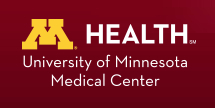Bortezomib and Rituximab in Treating Patients With Post-Transplant Lymphoproliferative Disorders
| Status: | Terminated |
|---|---|
| Conditions: | Lymphoma, Hematology |
| Therapuetic Areas: | Hematology, Oncology |
| Healthy: | No |
| Age Range: | 18 - Any |
| Updated: | 12/7/2017 |
| Start Date: | March 2009 |
| End Date: | December 2016 |
Phase II Trial of Bortezomib and Rituximab for Patients With Post Transplant Lymphoproliferative Disorders (PTLD)
RATIONALE: Bortezomib may stop the growth of cancer cells by blocking some of the enzymes
needed for cell growth and by blocking blood flow to the cancer. Monoclonal antibodies, such
as rituximab, can block cancer cell growth in different ways. Some block the ability of
cancer cells to grow and spread. Others find cancer cells and help kill them or carry
cancer-killing substances to them. Giving bortezomib together with rituximab may kill more
cancer cells.
PURPOSE: This phase II trial is studying how well giving bortezomib together with rituximab
works in treating patients with post-transplant lymphoproliferative disorders.
needed for cell growth and by blocking blood flow to the cancer. Monoclonal antibodies, such
as rituximab, can block cancer cell growth in different ways. Some block the ability of
cancer cells to grow and spread. Others find cancer cells and help kill them or carry
cancer-killing substances to them. Giving bortezomib together with rituximab may kill more
cancer cells.
PURPOSE: This phase II trial is studying how well giving bortezomib together with rituximab
works in treating patients with post-transplant lymphoproliferative disorders.
OBJECTIVES:
Primary
- To estimate the overall (complete and partial) response rates in patients with CD20+
post-transplant lymphoproliferative disorders treated with bortezomib and rituximab.
Secondary
- To evaluate the duration of remission, time to treatment failure, relapse-free survival,
and overall survival of these patients.
- To characterize the quantitative and qualitative toxicities of this regimen.
OUTLINE:
- Induction therapy: Patients receive bortezomib intravenously (IV) and rituximab IV on
days 1, 8, 15, and 22.
Patients achieving complete remission (CR) after completion of induction therapy proceed to
maintenance therapy after 6 months of rest. Patients achieving partial remission (PR) or
stable disease after completion of induction therapy receive additional bortezomib IV on days
1, 4, 8, and 11. Treatment repeats every 21 days for up to 4 courses in the absence of
disease progression or unacceptable toxicity. Patients achieving CR/PR after completion of
bortezomib therapy proceed to maintenance therapy after 3 months of rest.
- Maintenance therapy: Patients receive bortezomib IV and rituximab IV on days 1, 8, 15,
and 22. Treatment repeats every 6 months for 4 courses in the absence of disease
progression or unacceptable toxicity.
After completion of study treatment, patients are followed periodically for 2 years.
Primary
- To estimate the overall (complete and partial) response rates in patients with CD20+
post-transplant lymphoproliferative disorders treated with bortezomib and rituximab.
Secondary
- To evaluate the duration of remission, time to treatment failure, relapse-free survival,
and overall survival of these patients.
- To characterize the quantitative and qualitative toxicities of this regimen.
OUTLINE:
- Induction therapy: Patients receive bortezomib intravenously (IV) and rituximab IV on
days 1, 8, 15, and 22.
Patients achieving complete remission (CR) after completion of induction therapy proceed to
maintenance therapy after 6 months of rest. Patients achieving partial remission (PR) or
stable disease after completion of induction therapy receive additional bortezomib IV on days
1, 4, 8, and 11. Treatment repeats every 21 days for up to 4 courses in the absence of
disease progression or unacceptable toxicity. Patients achieving CR/PR after completion of
bortezomib therapy proceed to maintenance therapy after 3 months of rest.
- Maintenance therapy: Patients receive bortezomib IV and rituximab IV on days 1, 8, 15,
and 22. Treatment repeats every 6 months for 4 courses in the absence of disease
progression or unacceptable toxicity.
After completion of study treatment, patients are followed periodically for 2 years.
Inclusion Criteria:
- Histologically confirmed CD20+ B-cell post-transplant lymphoproliferative disorder
- Has undergone prior solid organ transplant
- Measurable disease as defined by Non-Hodgkin Lymphoma Response Criteria
- Eastern Cooperative Oncology Group (ECOG) performance status 0-2
- Absolute neutrophil count (ANC) ≥ 1,000/mm³
- Platelet count ≥ 75,000/mm³
- Creatinine ≤ 2.0 mg/dL OR creatinine clearance ≥ 40 mL/min
- Alanine transaminase (ALT) and Aspartate aminotransferase (AST) ≤ 3 times upper limit
of normal
- Total bilirubin ≤ 2.0 mg/dL
Exclusion Criteria:
- Pregnant or nursing
- Fertile patients must use effective contraception during and for 3 months after
completion of study treatment
- Peripheral neuropathy ≥ grade 2
- Known lymphomatous meningitis or central nervous system (CNS) involvement
- HIV infection
- Uncontrolled infection
- Myocardial infarction within the past 6 months or uncontrolled angina
- New York Heart Association class III-IV heart failure
- Severe uncontrolled ventricular arrhythmias
- Evidence of acute ischemia or active conduction system abnormalities by
electrocardiogram (EKG)
- Concurrent serious medical or psychiatric disorder (e.g., active infection or
uncontrolled diabetes) that, in the opinion of the investigator, would compromise the
safety of the patient or compromise the patient's ability to complete the study
- Diagnosis or treatment for another malignancy within the past 3 years, except
completely resected basal cell carcinoma or squamous cell carcinoma of the skin, in
situ malignancy, or curatively treated low-risk prostate cancer
- Known hypersensitivity to rituximab, bortezomib, boron, or any of the other agents
used in this study
- Less than 14 days since prior investigational drugs
- Less than 4 weeks since prior bortezomib therapy (12 weeks for rituximab) and
recovered from toxic effects prior to enrollment
We found this trial at
2
sites
2450 Riverside Ave
Minneapolis, Minnesota 55454
Minneapolis, Minnesota 55454
(612) 273-3000

University of Minnesota Medical Center, Fairview Improving patients' lives drives the innovation that makes University...
Click here to add this to my saved trials
4511 Forest Park Avenue
Saint Louis, Missouri 63110
Saint Louis, Missouri 63110
Click here to add this to my saved trials